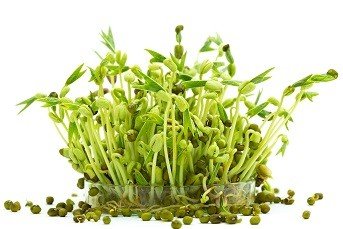ICAR- CFRI organizes International Conference on “Ecosystem Health and Fisheries of Indian Inland Waters: Multiple Stressors, Management and Conservation”
The experts stressed on the need for the proper management and conservation efforts restoring the ecosystem health of rivers and other open water bodies.
Dr Joykrushna Jena, Deputy Director General (Fisheries Science) ICAR inaugurated the International Conference on “Ecosystem Health and Fisheries of Indian Inland Waters: Multiple Stressors, Management and Conservation” organized by the ICAR-Central Inland Fisheries Research Institute, Barrackpore, Kolkata at Govind Ballabh Pant University of Agriculture & Technology (GBPUA&T), Pantnagar, Uttarakhand .
The conference is being jointly organized by the Inland Fisheries Society of India (IFSI), Barrackpore; ICAR-CIFRI, Barrackpore; College of Fisheries, GBPUA&T, Pantnagar; Aquatic Ecosystem Health & Management Society (AEHMS), Canada and Professional Fisheries Graduate Forum (PFGF), Mumbai from 17th to 19th February, 2020.
Dr Jena emphasized on the importance of fisheries sector in Indian agricultural and rural economy. He highlighted about more than 65% contribution of inland fisheries and aquaculture in the fisheries basket of the country. He expressed his concerns over the stressed condition of the aquatic ecosystems, their biotic communities and fisheries due to the increasing water maneuvering, pollution, erratic rainfall and global warming, over-exploitation of aquatic resources and over-fishing. Dr. Jena stressed on the need for the proper management and conservation efforts restoring the ecosystem health of rivers and other open water bodies.
The Guest of Honor, Dr Gopal Krishna, Director and Vice-Chancellor, ICAR-CIFE, Mumbai highlighted the importance of open water fisheries of the country. He hoped that the conference will bring out the recommendations to restore the ecosystem health of the inland open water resources.
Dr Tej Partap, Vice-Chancellor, GBPUA&T, Pantnagar hoped that the conference will provide an inter-disciplinary forum for interaction among the experts, researchers, consultants, students and other stakeholders for exchanging the ideas, sharing information, building common platforms.
Dr B.K. Das, Director, ICAR-CIFRI, Barrackpore briefed about the inland fisheries’ status in the country. He outlined about the important ecosystem health topics, such as, climate change, invasive species, connectivity, wetlands, biodiversity and all aspects of aquatic pollution, restoration and management, etc., in India that will be dealt with during the conference.
Dr M. Munawar, President, AEHMS, Canada accentuated on the importance of ecosystem health and its conservation. He regarded the management and conservation as important factors for maintaining the health and fisheries of rivers and other open water bodies.
The dignitaries also released the Conference Souvenir and Book of Abstracts along with Two Booklets namely – “Invasive species of River Ganga” and “Ex-situ conservation of wild Indian Major Carp germplasm of river Ganga” during the occasion.
More than 200 researchers, academicians including scientists from Canada and Bangladesh along with 150 farmers of Uttarakhand, Uttar Pradesh and West Bengal participated in the conference.
The experts stressed on the need for














